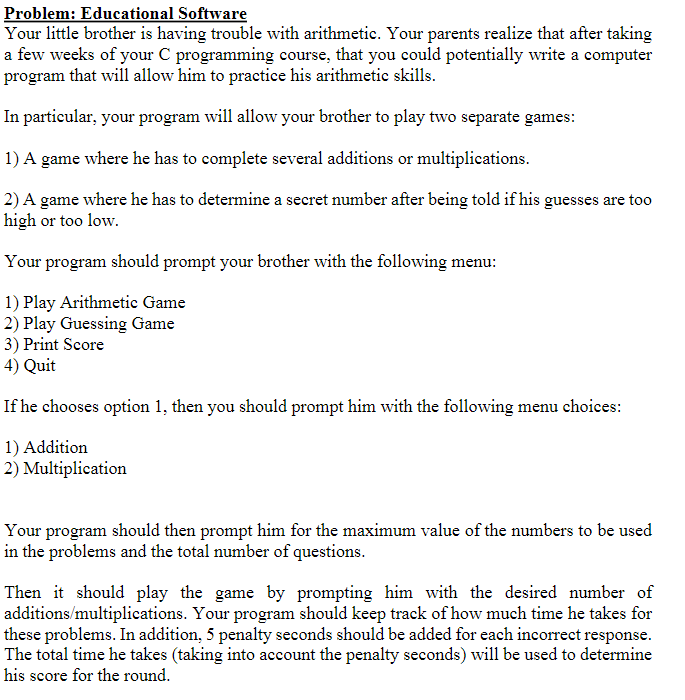
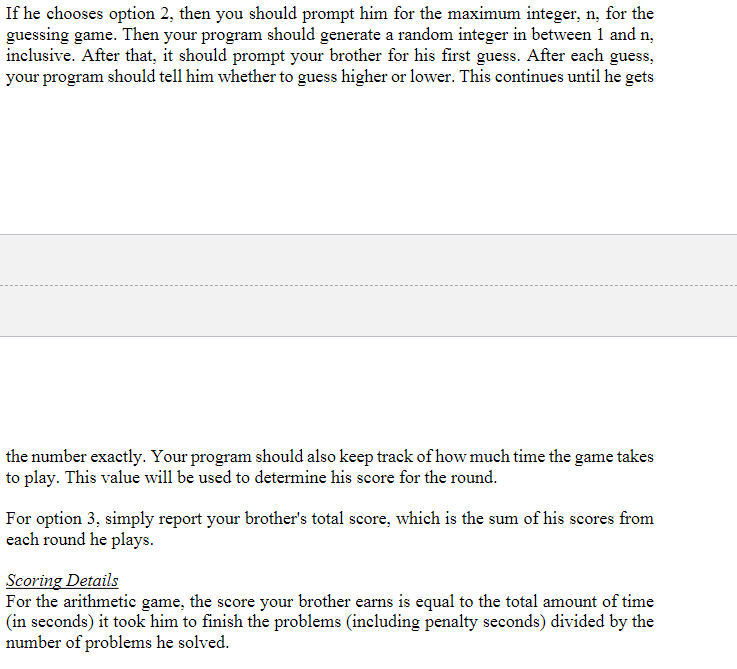
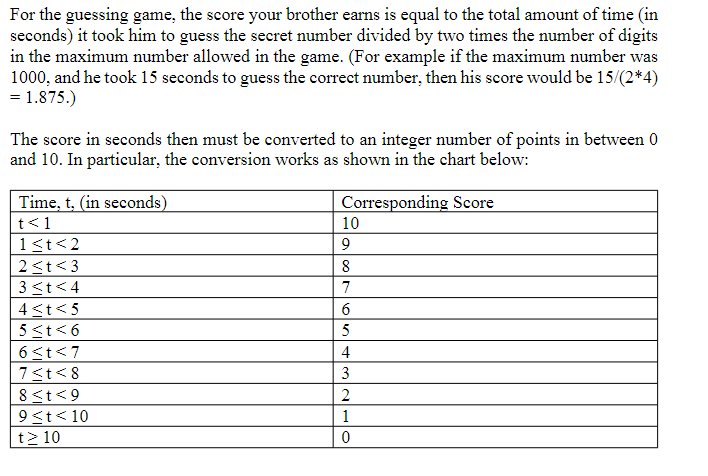
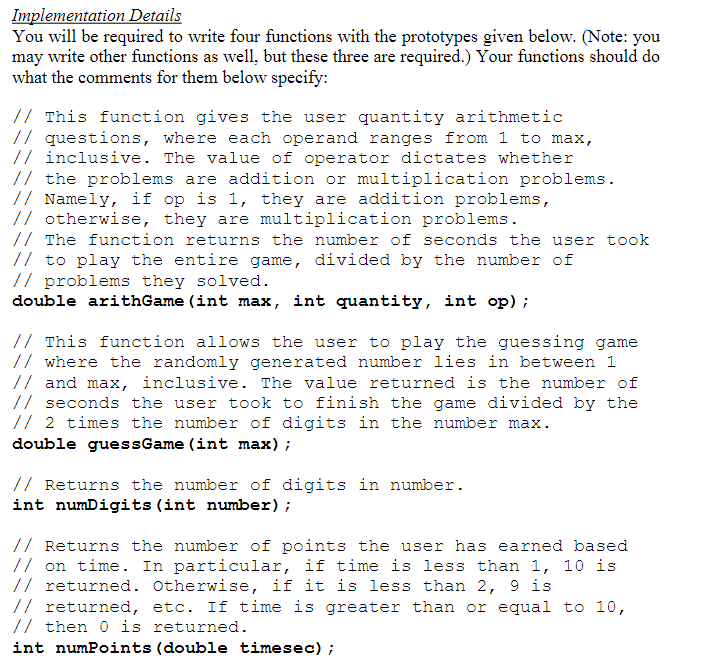
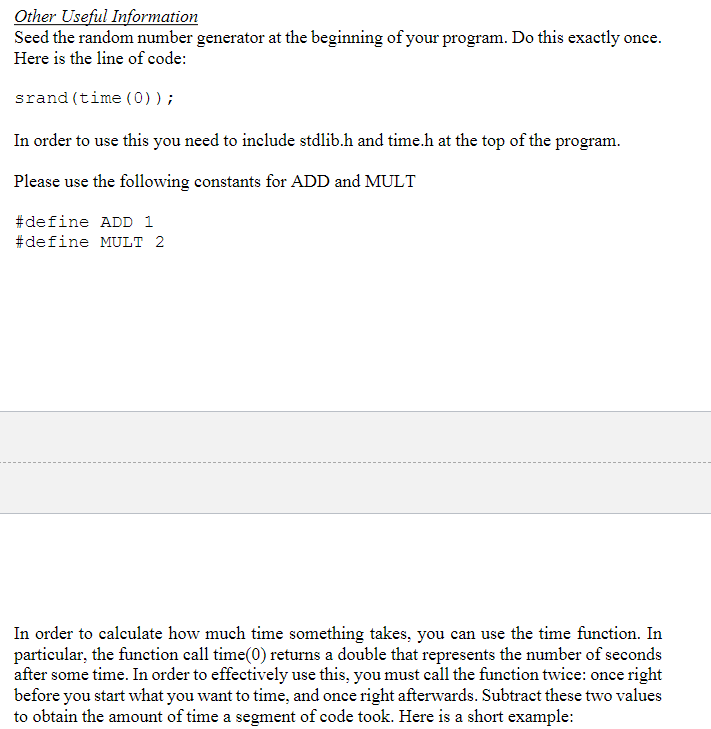
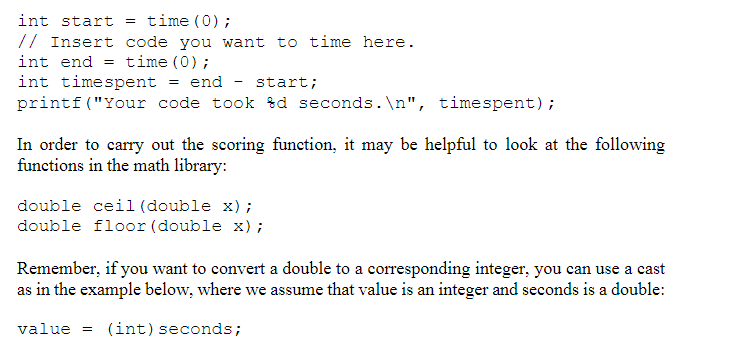
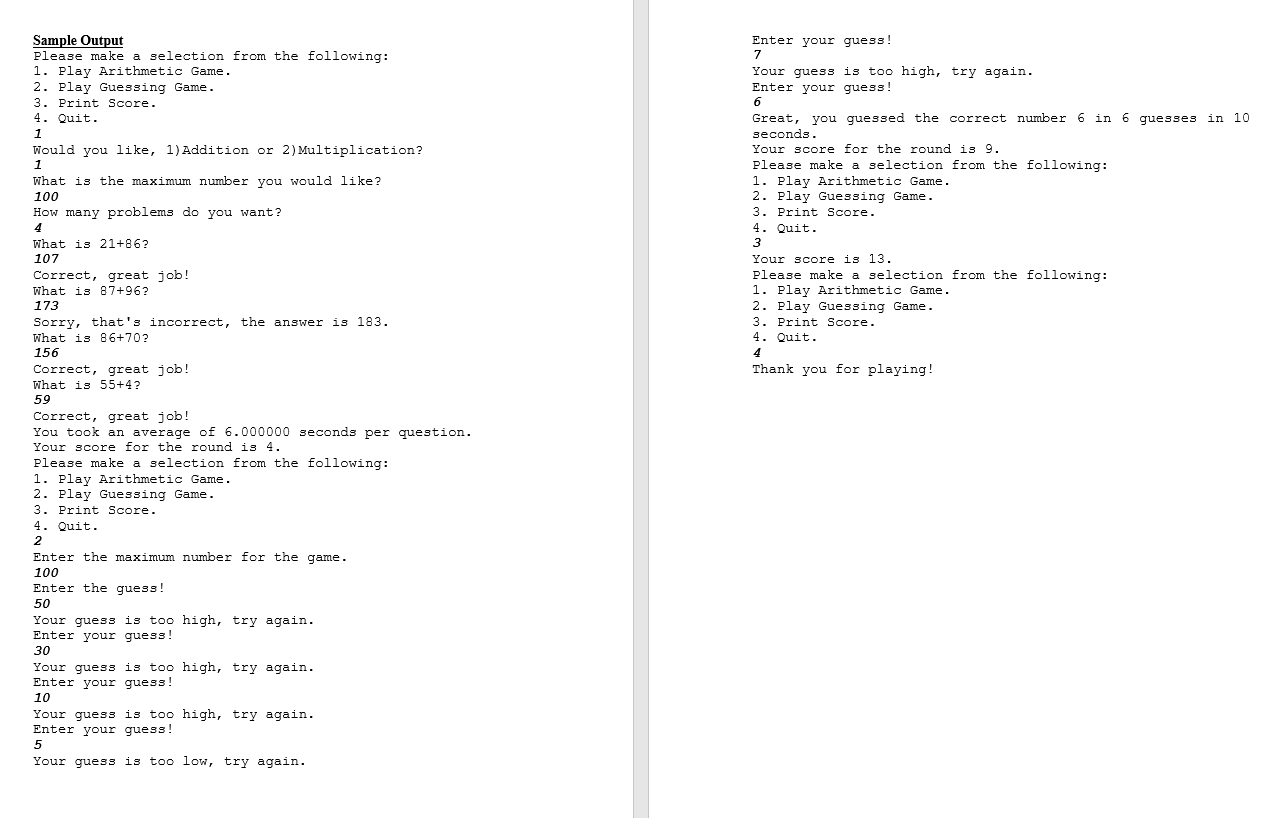 All in C
All in C
Problem: Educational Software Your little brother is having trouble with arithmetic. Your parents realize that after taking a few weeks of your C programming course, that you could potentially write a computer program that will allow him to practice his arithmetic skills. In particular, your program will allow your brother to play two separate games: 1) A game where he has to complete several additions or multiplications. 2) A game where he has to determine a secret number after being told if his guesses are too high or too low. Your program should prompt your brother with the following menu: 1) Play Arithmetic Game 2) Play Guessing Game 3) Print Score 4) Quit If he chooses option 1 , then you should prompt him with the following menu choices: 1) Addition 2) Multiplication Your program should then prompt him for the maximum value of the numbers to be used in the problems and the total number of questions. Then it should play the game by prompting him with the desired number of additions/multiplications. Your program should keep track of how much time he takes for these problems. In addition, 5 penalty seconds should be added for each incorrect response. The total time he takes (taking into account the penalty seconds) will be used to determine his score for the round. If he chooses option 2 , then you should prompt him for the maximum integer, n, for the guessing game. Then your program should generate a random integer in between 1 and n, inclusive. After that, it should prompt your brother for his first guess. After each guess, your program should tell him whether to guess higher or lower. This continues until he gets the number exactly. Your program should also keep track of how much time the game takes to play. This value will be used to determine his score for the round. For option 3, simply report your brother's total score, which is the sum of his scores from each round he plays. Scoring Details For the arithmetic game, the score your brother earns is equal to the total amount of time (in seconds) it took him to finish the problems (including penalty seconds) divided by the number of problems he solved. For the guessing game, the score your brother earns is equal to the total amount of time (in seconds) it took him to guess the secret number divided by two times the number of digits in the maximum number allowed in the game. (For example if the maximum number was 1000 , and he took 15 seconds to guess the correct number, then his score would be 15/(24) =1.875. The score in seconds then must be converted to an integer number of points in between 0 and 10. In particular, the conversion works as shown in the chart below: Implementation Details You will be required to write four functions with the prototypes given below. (Note: you may write other functions as well, but these three are required.) Your functions should do what the comments for them below specify: // This function gives the user quantity arithmetic // questions, where each operand ranges from 1 to max, / I inclusive. The value of operator dictates whether / / the problems are addition or multiplication problems. // Namely, if op is 1, they are addition problems, / otherwise, they are multiplication problems. / / The function returns the number of seconds the user took // to play the entire game, divided by the number of / / problems they solved. double arithGame (int max, int quantity, int op); // This function allows the user to play the guessing game // where the randomly generated number lies in between 1 / / and max, inclusive. The value returned is the number of // seconds the user took to finish the game divided by the // 2 times the number of digits in the number max. double guessGame (int max); // Returns the number of digits in number. int numbigits (int number) ; // Returns the number of points the user has earned based // on time. In particular, if time is less than 1,10 is // returned. Otherwise, if it is less than 2, 9 is // returned, etc. If time is greater than or equal to 10, / / then 0 is returned. int numPoints (double timesec); Other Useful Information Seed the random number generator at the beginning of your program. Do this exactly once. Here is the line of code: srand (time (0)); In order to use this you need to include stdlib.h and time.h at the top of the program. Please use the following constants for ADD and MULT \#define ADD 1 \#define MULT 2 In order to calculate how much time something takes, you can use the time function. In particular, the function call time(0) returns a double that represents the number of seconds after some time. In order to effectively use this, you must call the function twice: once right before you start what you want to time, and once right afterwards. Subtract these two values to obtain the amount of time a segment of code took. Here is a short example: In order to carry out the scoring function, it may be helpful to look at the following functions in the math library: double ceil (double x) ; double floor (double x) ; Remember, if you want to convert a double to a corresponding integer, you can use a cast as in the example below, where we assume that value is an integer and seconds is a double: value = (int) seconds






 All in C
All in C 





